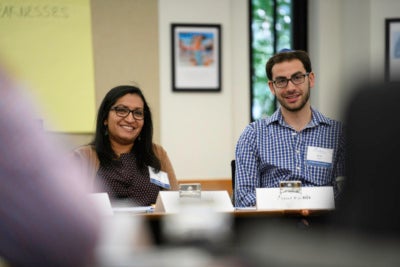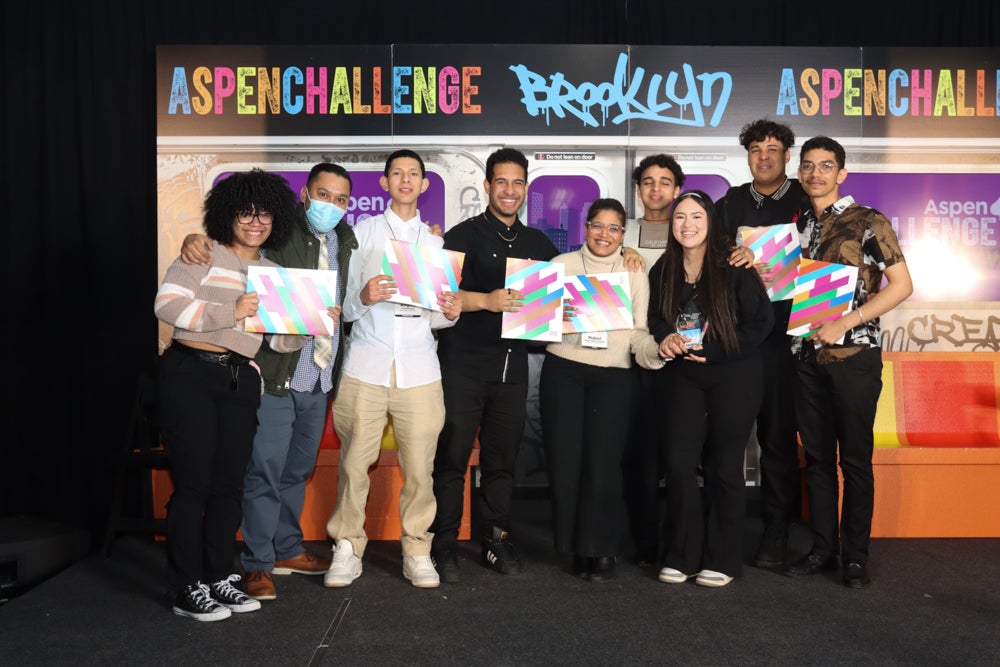What drove me to fight bias, bigotry, and hatred was how I felt as a child, when I was bullied as a Jew as my “friends” called my brother “Christ Killer.” I’ll never forget the hurt and humiliation of that moment and how we spent that entire summer isolated and ostracized. It moved me to do what I do, and I still feel hurt whenever I see hate in action. But when the hate comes in the form of anti-Semitism, it takes me back to my childhood experience with particular sharpness.
Lately, it feels like anti-Semitism is exploding. First, marchers descended on Charlottesville proclaiming “Jews will not replace us,” followed by the Pittsburgh slaughter, and now in New York, in my community, Jews were stabbed while celebrating a holiday in their Rabbi’s home. These are not isolated events.
So, how do we think about this form of hate—and all the others, and how do we address these divisions in our nation? There are of course lots of answers, laws, policies, emerging technologies, all tackling the underlying causes. There is one thing we can all do, starting now. We can resist the emerging practice of calling people out and canceling them—a social media norm with a complicated and not always constructive impact.
Many have noted that the cancel culture is not new, it just looks different. Social media, and instantaneously using clicks to collectively shame friends and public figures alike, makes it feel different. But how did we get here? And how do we talk to people with whom we profoundly disagree, not to disparage and argue to win, but as fellow humans?

In moments like these, I am reminded of something I heard about our organization’s namesake, Rabbi Marc Tanenbaum. He was described as “quick to call out anti-Semitism, but slow to call someone an anti-Semite.” His approach provides a model for how to put the Golden Rule into practice, while still seeking accountability.
It’s how I try to engage with the world every day, and it’s not always easy. So much of the bigotry I encounter haunts me. But at Tanenbaum, our aim is to make sure that people are not targeted, harassed, or murdered because of how they pray, who they are, where they come from, or who they love. And it is my responsibility, and my personal commitment, to radicalize thinking about how to practice respect and put it into practice.
Today, we are so divided that most of us hear (and agree with) only one side, one narrative, one truth. Our conversations with friends often reaffirm our convictions and we seek information that supports our preconceived conclusions. Meanwhile, algorithms confirm and affirm us through echo chambers on the Internet.
This fuels a culture that permits us not only to call out a wrong idea, but to cancel the person associated with the action or belief. It urges us to also join the trend of discrediting individuals to the point where they’re shunned by their communities, as a way of holding them accountable. The cost is further isolating and essentializing people based on what they said or believe as opposed to the totality/complexity of who they are.
We need to radicalize respect by practicing respectful curiosity. A way to start doing this is by adopting some key guiding principles. First, that toxicity is toxic and it spreads quickly. Second, that it matters if you inflict pain, but your intention and your willingness to take responsibility matters too. Finally, we need to recognize that it’s normal (and often very difficult) to disagree, but it’s still valuable to make the effort to really listen and sometimes learn from those with whom we differ.
These principles position us to relate to people who have totally different ways of believing and being. This can be hard. And it can require us to re-learn how to listen and hear what is said without simultaneously crafting a response in our heads. That doesn’t mean we give away our own beliefs or don’t respond. We listen—really listen first, and then respectfully share how our experience informs our differing viewpoint, responding with our own truth(s).
And when responding, it is critical to do so without passing judgment. Opposing a position or criticizing an idea is very different from castigating a human being, and shaming them for having that position. We can all learn from Rabbi Marc Tanenbaum. Let’s be quick to condemn and cancel hateful rhetoric, misinformation, disinformation, but slow to label the person “hater,” “liar,” or “manipulator.”
There is another way to be who we each are, to believe what we believe, to hold people to account and still cancel the cancel culture. Let’s start by radicalizing respect and turning it into a movement.
Joyce S. Dubensky is the CEO of Tanenbaum, an organization committed to dismantling religious prejudice, hatred and violence, and simultaneously promoting justice and respect for people of all religious beliefs.
The Inclusive America Project is committed to advancing a thriving U.S. Religious Pluralism and believes an important step to achieving this goal is sharing diverse voices and ideas across our platforms. In this spirit, we are pleased to publish blogs written by external authors working in and around the space.
The views and opinions expressed in this blog do not necessarily reflect those of the Aspen Institute.

